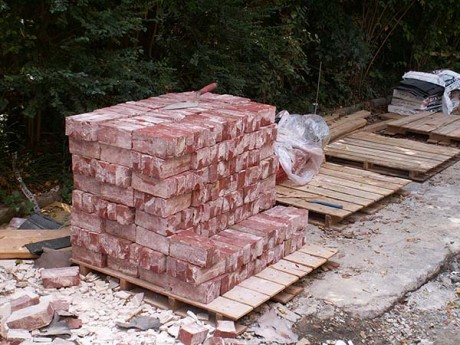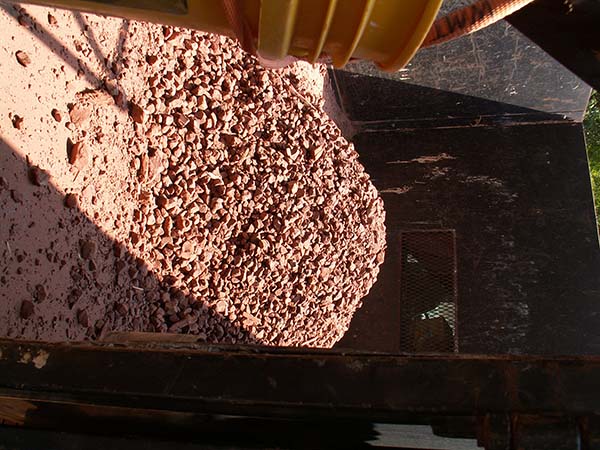Waste not
You can recycle construction debris
Today, there are so many environmentally friendly choices you can make when renovating a home. You can choose engineered lumber to conserve wood, water-saving faucets and energy-efficient appliances to preserve precious resources.
Yet perhaps the most environmentally significant decision you’ll make during any remodeling project isn’t what you’ll put into your home, but what you’ll do with the materials you remove.
ossing construction debris into a dumpster has been common practice for all too long, notes Carl Seville, a builder, educator and sustainability consultant to the residential construction industry. “With a little basic planning and proper jobsite management, you can reduce renovation waste by more than 50 percent,” says Seville, owner of the Atlanta-based firm Seville Consulting (sevilleconsulting.com).
Seville practices what he preaches. Take the EarthCraft/TecHome Showcase House he built for the Southern
Building Show. “We made use of every possible material that was removed from the existing home that was demolished,” Seville says. “Lumber was ground into wood chips that were then used for on-site erosion control. Large, serviceable boards were donated to furniture makers. We re-used stone and brick in nearby renovation projects. Other materials, like concrete and broken brick, were ground up and used as gravel during construction.”
What can you recycle and who will take it?
Some of the most common items usually jettisoned are also the simplest to repurpose. Cabinets, plumbing and lighting fixtures, windows and appliances that are serviceable but outdated can be donated to non-profit groups like Habitat for Humanity (or your local equivalent). Ask first if the group will pick up items before driving them there.
“Copper wiring and plumbing, aluminum gutters and non-ferrous metals all provide a fairly reasonable return for your time and effort,” Seville says. Take them to a metal recycling facility.
Broken bricks and chips, concrete block, asphalt roof shingles, clay roof tiles and ceramic tiles can be ground into gravel, as can toilets and porcelain sinks. Check with grinding companies to see materials they will accept. Landscape contractors may want older bricks, which they can use to add instant character to walkways.
For wood, framing lumber that is still straight and true can sometimes be reused, and unpainted lumber can be ground into mulch, Seville says. Don’t forget to consider the type of wood. Older homes often were constructed using rare wood considered valuable today, like heart pine. Contact a lumber milling company to see if it makes sense for them to re-mill and reuse the boards.
-
Share this story:




